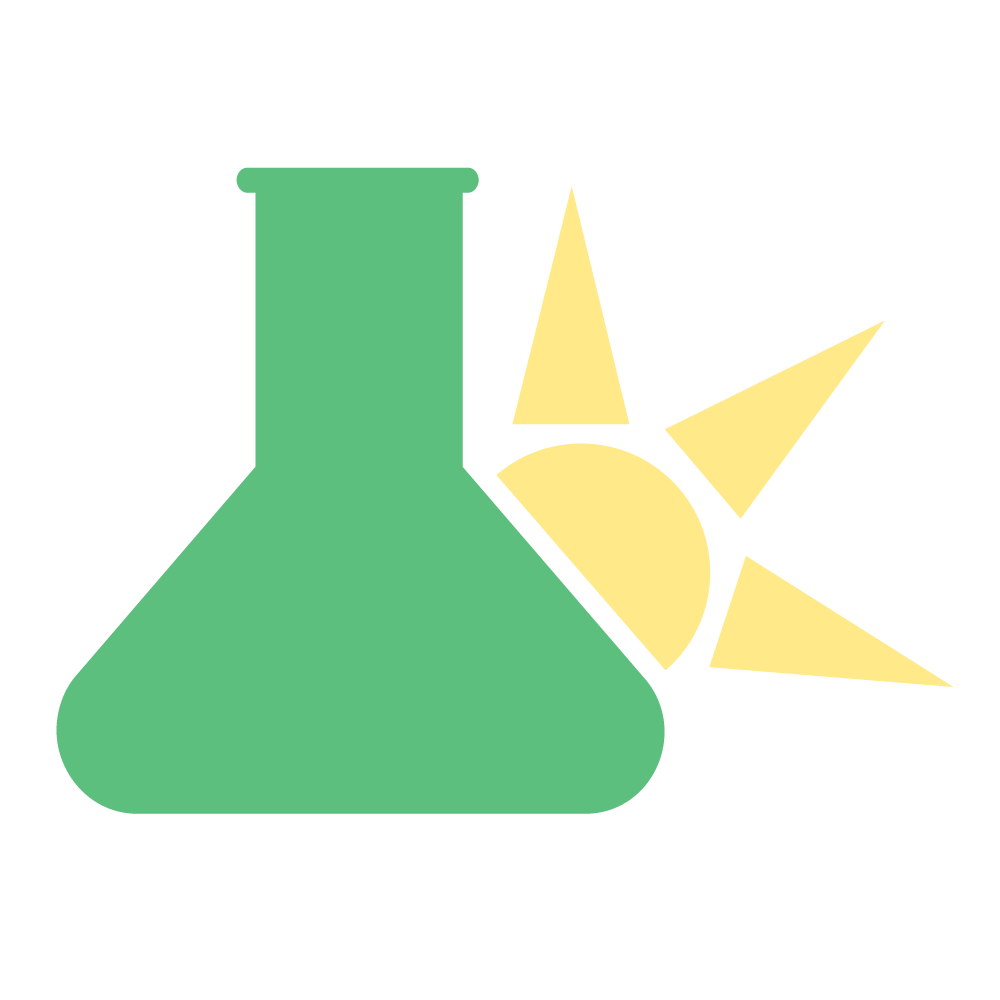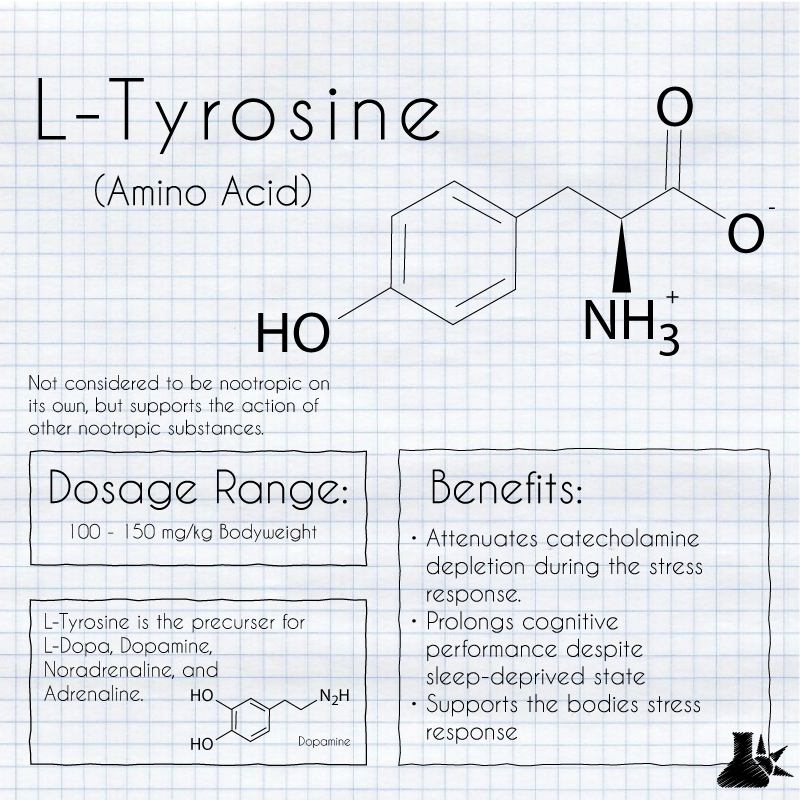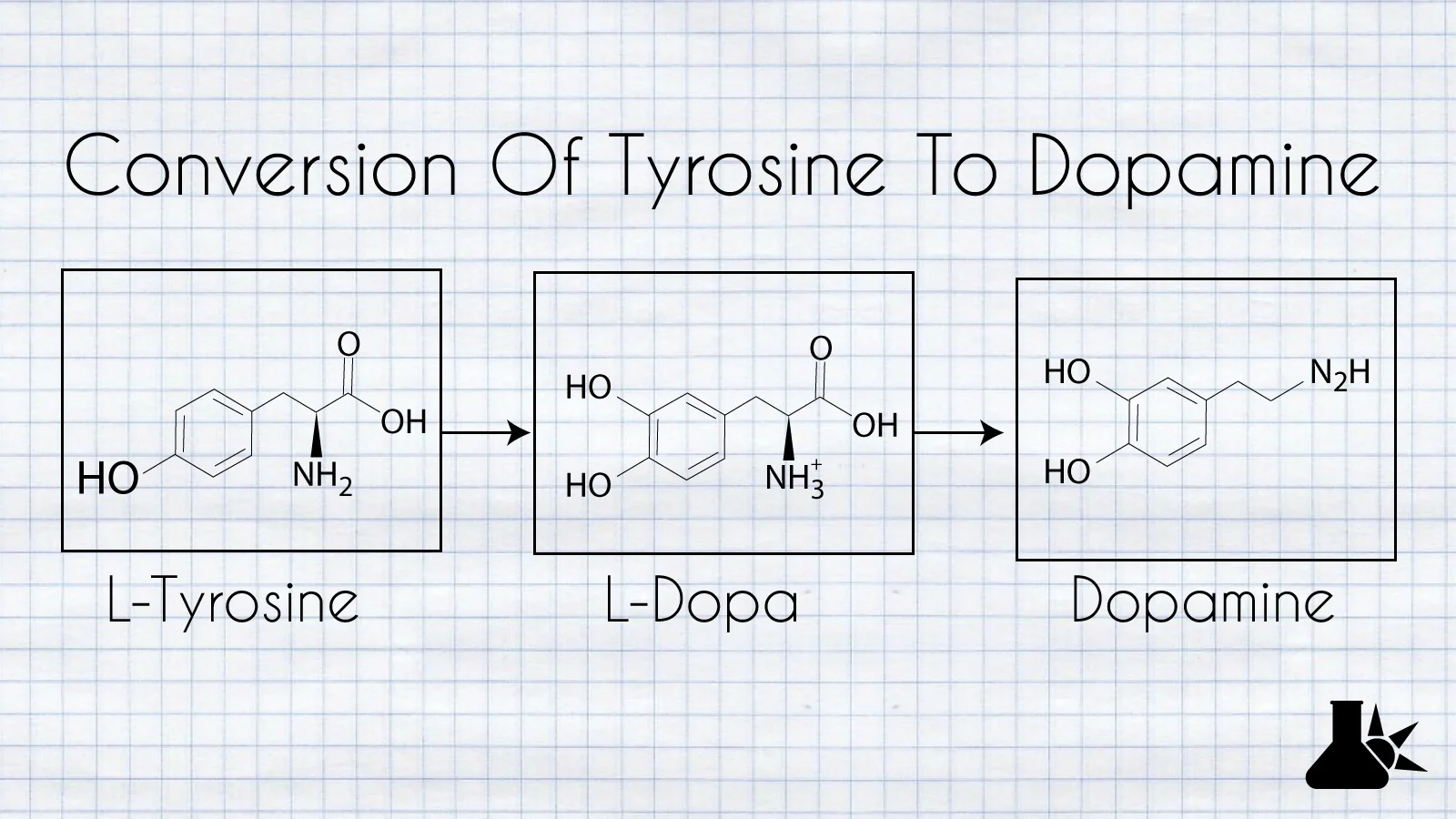L-Tyrosine Summary
L-Tyrosine is one of the 20 standard amino acids. It is a non-essential amino acid that can be obtained from diet, supplementation, or produced within the body from phenylalanine.
L-Tyrosine serves as a precursor for the catecholamines. First, it is converted into L-Dopa, then dopamine, noradrenaline, and finally adrenaline. The primary mechanism behind tyrosines nootropic activity is through this pathway. Tyrosine is in effect the fundamental building block for the production of these neurotransmitters.
As a building block, tyrosine does not do much concerning stimulating the production of these neurotransmitters but will support the activities of other nootropics that act to upregulate the production of these catecholamine neurotransmitters.
l-tyrosine nootropic overview FIND IT HERE
Where Does L-Tyrosine Come From?
Tyrosine can be found through dietary sources, supplemental form, and can also be produced within the body itself from the essential amino acid phenylalanine. Foods high in tyrosine include cheese, soybeans, lamb, beef, dairy, eggs, nuts, and seeds.
Tyrosine can also be obtained by consuming foods high in phenylalanine.
+ Indications
- Taken alongside nootropics tageting the production of L-Dopa and dopamine.
+ Contraindications
None noted.
+ Mechanisms
- Catelcholamine precurser
- Buffers catelcholamine levels
- Thyroid hormone precurser
General Actions:
- Catelcholamine precurser
- Adaptogenic
- Attenuates cognitive decline due to sleep deprivation
Dosage
200-5000 mg/day
These are fairly high doses and may cause some GIT upset.
Best taken 30-60 minutes before stress, or throughout the day in combination with other nootropic substances.
Order Some NowChemical Description
Tyrosine (L-tyrosine) (4-hydroxyphenylalanine), is one of the 20 amino acids considered to be standard for human life. Tyrosine is a non-essential amino acid that can be obtained from diet, supplementation, or produced in the body from phenylalanine.
This amino acid serves as a precurser for L-dopa, dopamine, noradrenaline, and adrenaline.
Pharmacology & Medical Research:
+ Stress
Studies investigating the effects of supplemental L-Tyrosine in combination with stressful events such as cold stress and sleep deprivation have shown that subjects in the treatment group showed delayed depletion of catecholamines than the control group. This finding is expected as tyrosine is a precursor to the catecholamine neurotransmitters adrenaline and noradrenaline. Both of which are crucial in the stress response. The problem with this finding was that the effects were only noted at fairly high doses (200-400 mg/kg). [1, 2].
+ Wakefulness
Tyrosine was shown to have a protective effect against a decrease in cognitive performance associated with sleep deprivation at a dose of 150 mg/kg [3].
Toxicity
May interact with MAOIs, and thyroid medications.
Synergy:
Take with dopamine upregulators or other catecholanergics.
Recent Blog Posts:
References:
Shurtleff, D., Thomas, J. R., Schrot, J., Kowalski, K., & Harford, R. (1994). Tyrosine reverses a cold-induced working memory deficit in humans. Pharmacology Biochemistry and Behavior, 47(4), 935-941.
Lehnert, H., Reinstein, D. K., Strowbridge, B. W., & Wurtman, R. J. (1984). Neurochemical and behavioral consequences of acute, uncontrollable stress: effects of dietary tyrosine. Brain research, 303(2), 215-223.
ChicagoNeri, D. F., Wiegmann, D., Stanny, R. R., Shappell, S. A., McCardie, A., & McKay, D. L. (1995). The effects of tyrosine on cognitive performance during extended wakefulness. Aviation, space, and environmental medicine.








As COVID-19 continues to spread around the world, we’re getting a lot of questions on what the potential role of herbal medicine is during the outbreak. Learn how the virus works and how to limit your chances of transmission.